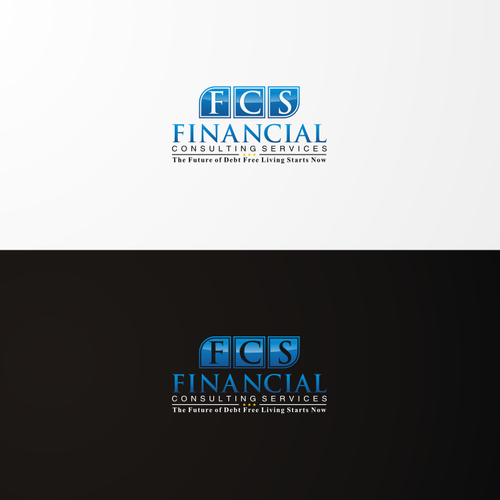
To develop a customized retirement plan, a retirement advisor will review the client's financial information, including their annual income and any debts. This plan serves as a guideline for clients' retirement decisions. Advisors can also make recommendations on a range of retirement planning products. Clients should expect to pay a fee when working with advisors.
Qualifications for a retirement planner
One of the most important qualifications for a retirement advisor is their ability to manage retirement assets effectively. As such, it is important to be educated in the fields of economics, taxation, and retirement planning. These credentials will help you build your credibility and make you a valuable asset to clients.
To become a retirement adviser, you will need a bachelor's Degree. Ideal degrees in finance, business or any related field are required. Experience is the best teacher. Many advisors gain their skills by working in real-world situations. Advisors begin their training on the job, which can sometimes last as long as a year. This training helps them understand their roles and to build a list of clients. Additional education and work experience are required for certification.

Cost of a retirement adviser
While the cost of a retirement advisor varies from person to person, there are some general guidelines to consider when choosing the right professional. The fee for a retirement advisor can range from $700 to $3500. However, fees are not always linked to the investment value. Before you sign anything, it is important that you ask about the fee. Also, make sure you ask about follow-up meetings.
Some advisors are fee-only and don't charge for assets managed. Others charge a flat annual or monthly fee. Fee-only advisors may charge a $1,000 initial fee. Although the initial fee is higher due to the amount of work required, subsequent meetings should not be expensive.
Conflicts of interests when working with a retirement advisor
Working with a retirement planner is not without risks. While advisors are supposed not to be in your best interest but can sometimes cause conflicts of interests when financial advisors get back-door and hidden fees. This could mean that they will direct you towards low-cost, high-return investments. These hidden fees can benefit Wall Street companies. Clients lose approximately one percentage point annually in their investments as a result.
Relationships with other professionals, organizations or centers of influence could lead to conflicts of interests. Advisors are required to disclose business affiliations and describe how they manage conflicts. The guidelines do not prohibit conflicts of interests. A good retirement advisor should disclose all financial relationships with which they are affiliated.

Time to find a retirement advisor
If you are just starting your career or are planning your retirement, it may be time to hire a financial advisor. A financial advisor is able to help you plan your retirement plans and avoid financial hardship later. The advisor should have the appropriate experience and expertise to provide sound advice. A qualified advisor can also help you to choose the best insurance policies and strategies to minimize your tax liability.
Interviewing multiple advisors is a great method to find the right one. You might want to pick someone who has experience with clients like yours, even those of color. You can also inquire about their fees. They may charge by the hour or retainer. Make sure you have a written contract with your financial advisor before hiring them.
FAQ
Consulting is it a job?
Consulting is not only a good entry-level job for people looking to make quick money.
Consulting can offer many career opportunities, such as project management and business development. Projects could include small start-ups or large international corporations.
Consulting allows you to learn and improve your skills while also gaining experience in many industries. This could include learning how to manage teams, write proposals, manage budgets and analyze data.
How do you get clients for your consultancy business?
First, find a subject you're passionate about. It could be anything from social media to public relations, but there must be something you feel strongly about. If this is the case, it may be worth starting small by focusing on a niche market such web design. Once you have discovered the niche, understand what it does. What problems does it solve Why should people use them? How can you help them?
You can also contact businesses directly.
You can also offer your services at events such as networking nights and conferences, if all else fails. You'll get to know many potential clients without spending money advertising.
What is a consultant?
Consultants are those who offer services to other people. It's more than just a job title. This role allows you to help others achieve their dreams. This is done by helping others understand their options and making the right decisions.
Consultants are experts in finding solutions to the problems and challenges that arise while working on projects. Consultants can also offer advice and guidance regarding how to implement these solutions.
Consulting should be able address questions related to law, finance and technology.
What contracts are available for consultants?
Standard employment agreements are signed by most consultants when they are hired. These agreements detail the length of the consultant's contract with the client, the amount he/she is paid, and other important details.
Contracts can also indicate the areas of expertise that the consultant will concentrate on and the compensation they will receive. An agreement could state, for example, that the consultant will offer training sessions, workshops and webinars.
Sometimes the consultant will simply agree to complete a task within a certain timeframe.
Many consultants sign independent contractor arrangements in addition to standard employment contracts. These agreements allow consultants to work independently while still receiving payment.
Do I need legal advice?
Yes! Yes. Consultants can often create contracts with clients, without seeking legal advice. This can cause problems later on. For example, what happens to the contract if the client terminates it before the consultant has completed? What happens if the consultant doesn’t meet the deadlines specified in the contract.
It's best to consult with a lawyer to avoid potential problems.
What skills are necessary for consulting?
Consultants should be able to communicate effectively and have excellent analytical skills. This is crucial because you might not be able to understand what you are doing when you work on complex projects. This is a must because you need to learn how quickly you can manage people.
Communication skills are essential. Most clients expect to hear back within 24 hours. If they don't hear back from you, they assume you aren't interested. It is vital to inform them and make sure that they are fully informed.
Can anyone be an advisor?
A consultant is someone that helps you achieve your goal. They can offer advice on how to do it better, faster and cheaper.
A consultant can help you solve problems, make decision, or negotiate with people.
Consultants can be hired to assist with specific tasks or projects.
Consultants are usually paid hourly, daily or per project.
Statistics
- Over 50% of consultants get their first consulting client through a referral from their network. (consultingsuccess.com)
- Over 62% of consultants were dissatisfied with their former jobs before starting their consulting business. (consultingsuccess.com)
- According to statistics from the ONS, the UK has around 300,000 consultants, of which around 63,000 professionals work as management consultants. (consultancy.uk)
- "From there, I told them my rates were going up 25%, this is the new hourly rate, and every single one of them said 'done, fine.' (nerdwallet.com)
- 67% of consultants start their consulting businesses after quitting their jobs, while 33% start while they're still at their jobs. (consultingsuccess.com)
External Links
How To
What does a typical consultant's day look like?
A typical day will vary depending on the type of work you are undertaking. But, in general, you will spend your time researching, planning and meeting new clients.
Clients will often meet with you to discuss their problems. These meetings can take place over the phone, via email, online, or face to face.
Also, proposals are documents that outline your ideas or plans for clients. Before presenting these proposals to clients, you will usually need to discuss them with a colleague or mentor.
After all the preparation and planning, it's time to actually create some content. You could write articles, design websites, edit photos or conduct interviews.
Depending on your project's scope, it may be necessary to do research to get relevant statistics. For example, you may need to find out how many customers you have and whether they are buying more than one product or service.
Once you have collected enough information, it's now time to present the findings to your clients. You can either present your findings in writing or orally.
After your initial consultation, you should follow up with your clients. For example, you might call them periodically to see how things are going or send emails asking them to confirm that they received your proposal.
Although this process can take time, it is important to stay focused and build good relationships with your clients.